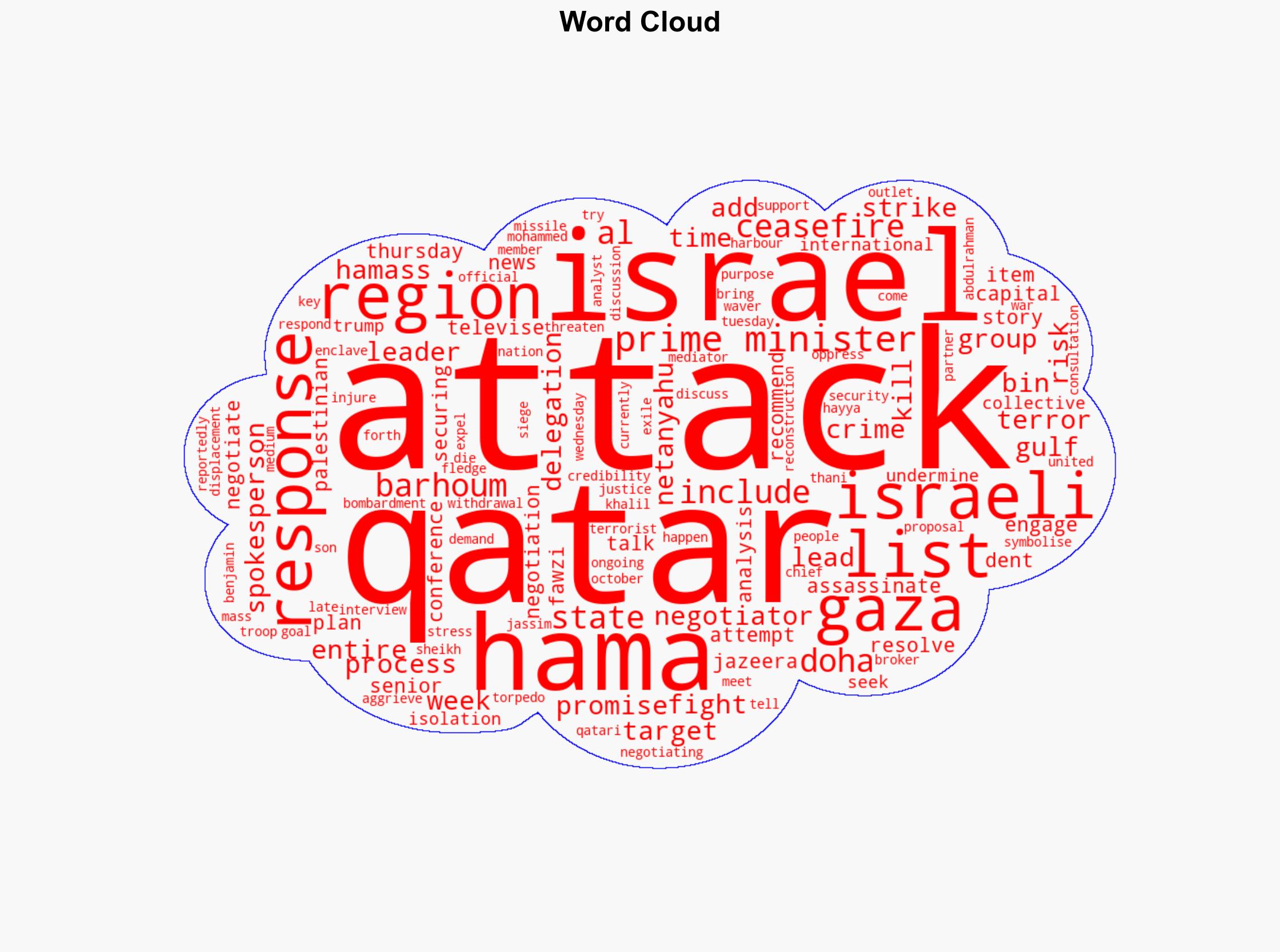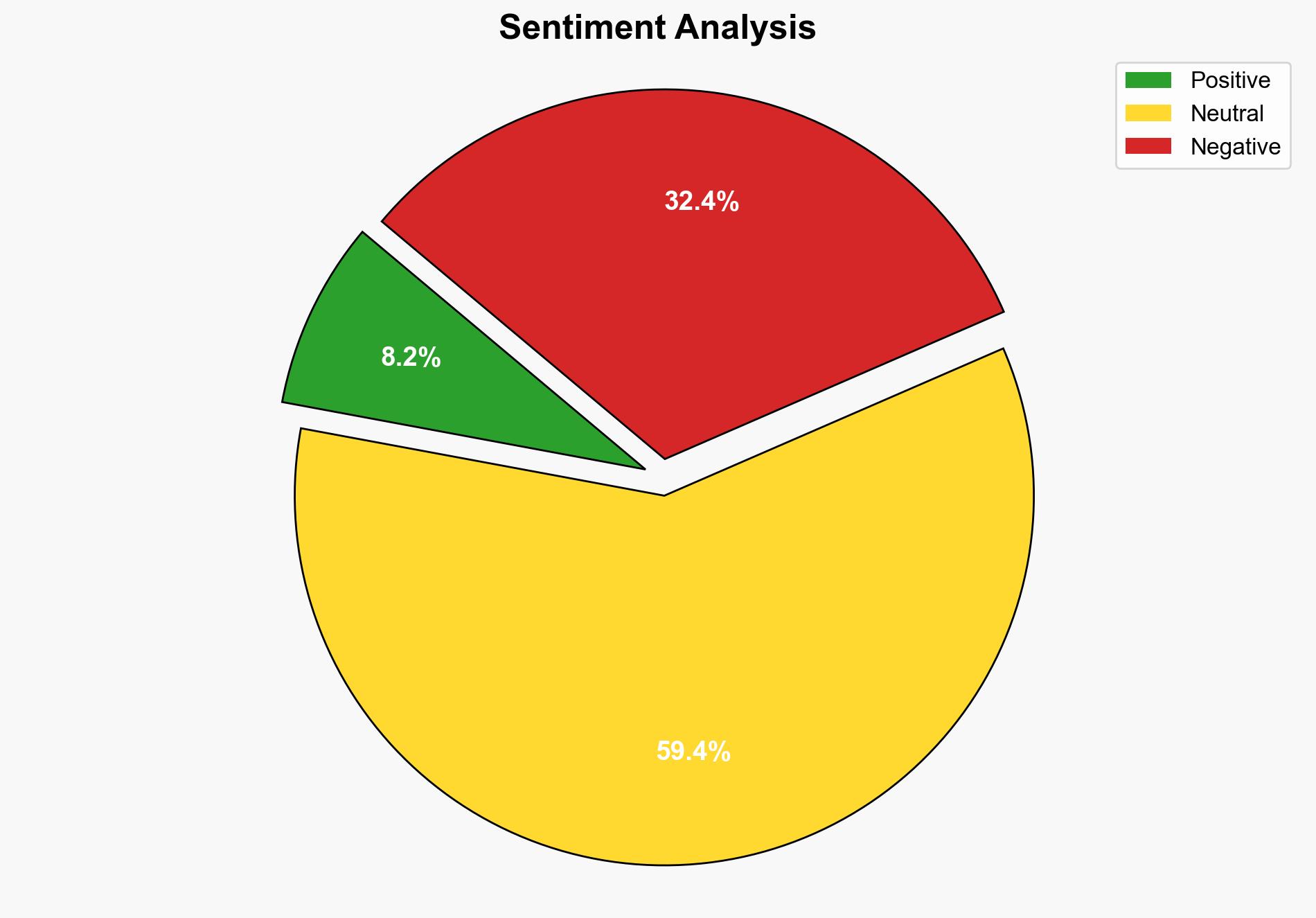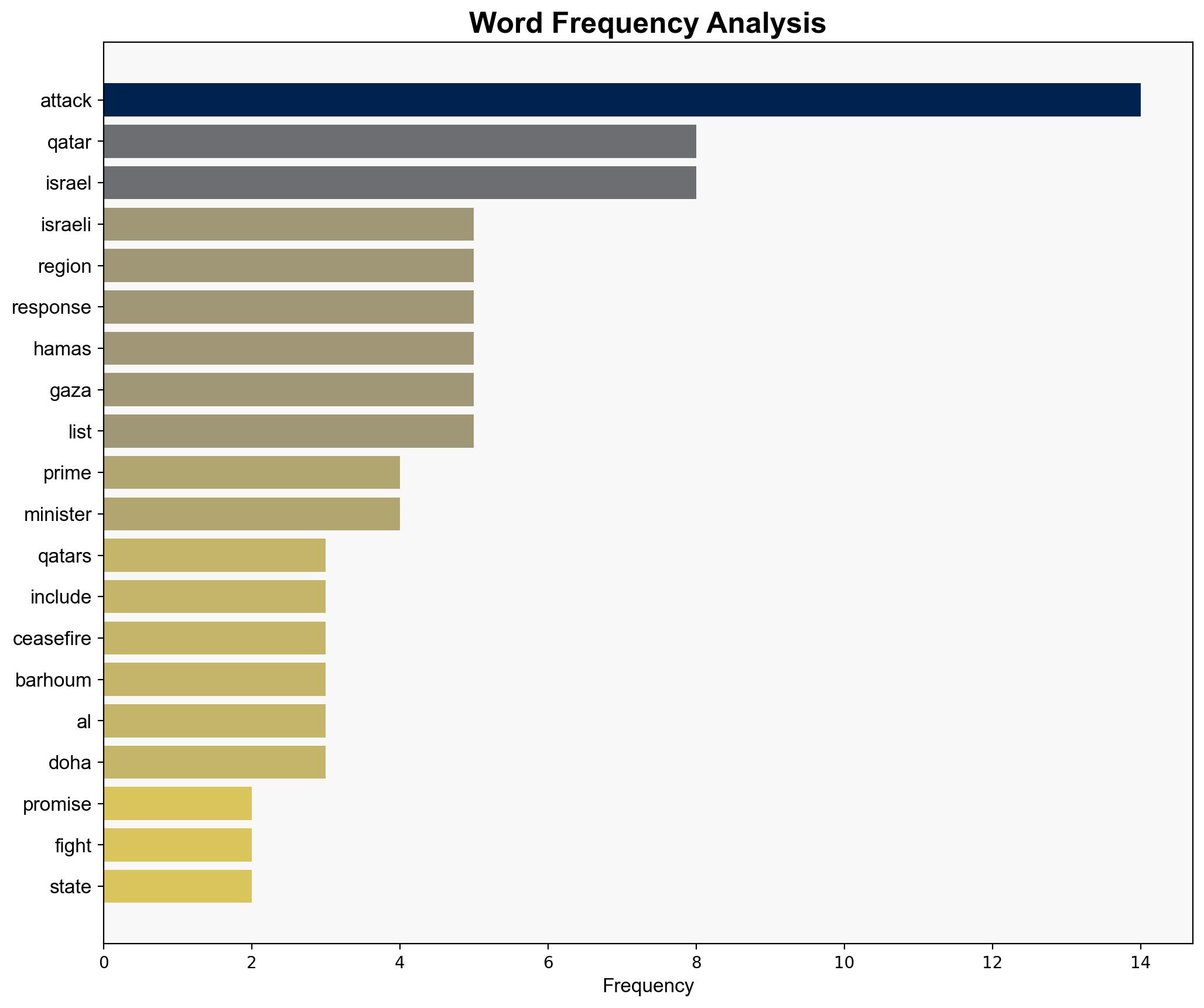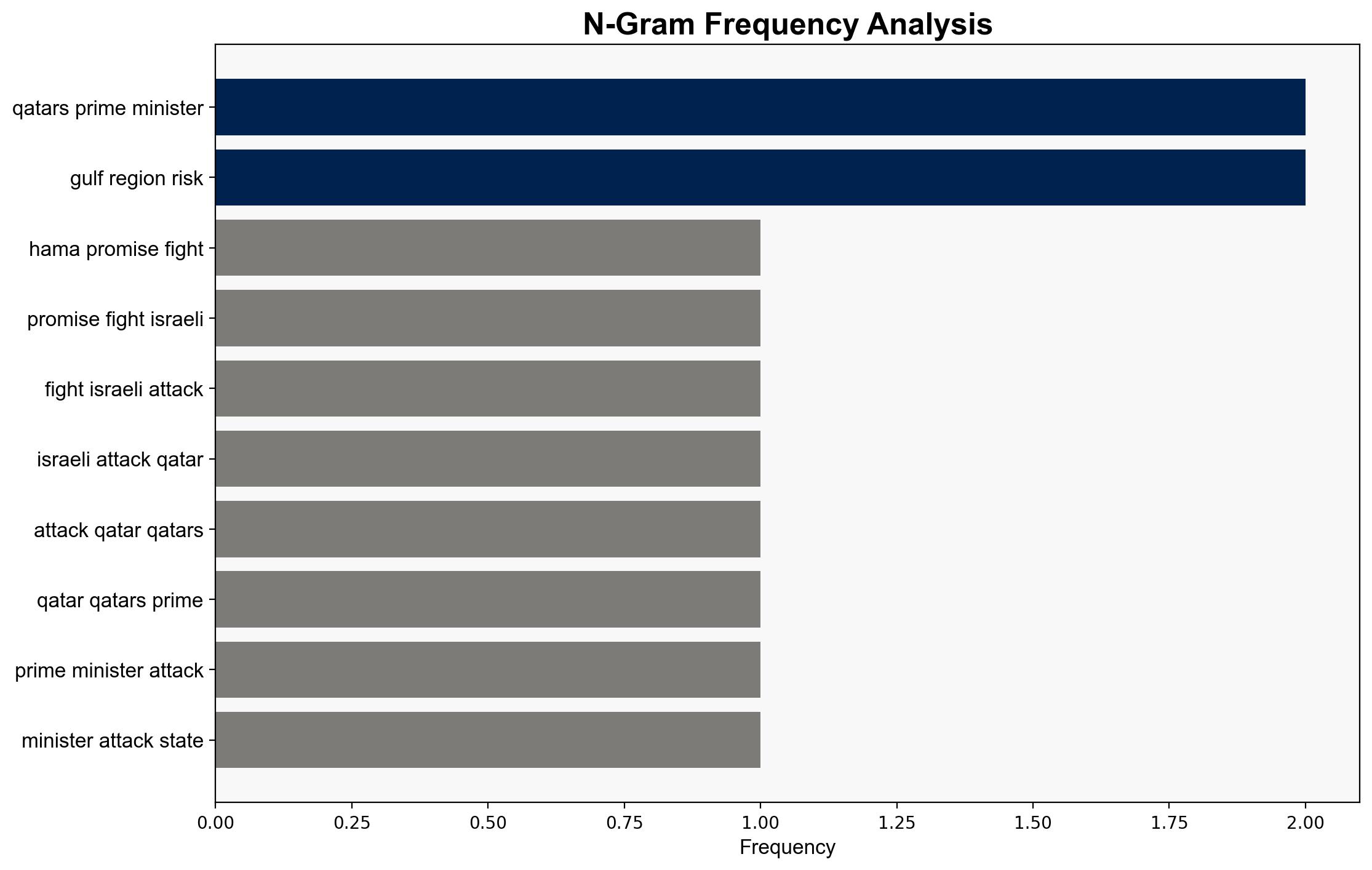Hamas promises to keep fighting after Israeli attack on Qatar – Al Jazeera English
Published on: 2025-09-11
Intelligence Report: Hamas promises to keep fighting after Israeli attack on Qatar – Al Jazeera English
1. BLUF (Bottom Line Up Front)
The strategic judgment indicates a high likelihood of increased regional tensions following the Israeli attack on Qatar, with a medium confidence level. The most supported hypothesis suggests that the attack aims to disrupt peace negotiations and isolate Qatar internationally. Recommended actions include diplomatic engagement to de-escalate tensions and reinforce regional alliances.
2. Competing Hypotheses
1. **Hypothesis A**: The Israeli attack on Qatar was intended to disrupt ongoing peace negotiations between Hamas and Israel, thereby weakening Hamas’s negotiating position and isolating Qatar as a mediator.
2. **Hypothesis B**: The attack was a strategic move by Israel to provoke a broader regional conflict, thereby justifying further military actions and consolidating domestic support.
Using ACH 2.0, Hypothesis A is better supported due to the timing of the attack coinciding with peace talks and Qatar’s role as a mediator. Hypothesis B lacks direct evidence but remains plausible given regional dynamics.
3. Key Assumptions and Red Flags
– **Assumptions**: It is assumed that Israel perceives Qatar’s mediation as a threat to its strategic interests. Another assumption is that Hamas’s commitment to fighting is unwavering despite leadership losses.
– **Red Flags**: The lack of direct evidence linking the attack to a broader regional strategy by Israel. Potential bias in reporting from Al Jazeera, given its Qatari affiliation.
– **Deception Indicators**: Possible exaggeration of the attack’s impact by Hamas to garner international sympathy.
4. Implications and Strategic Risks
The attack could lead to increased instability in the Gulf region, potentially drawing in other regional powers and escalating into a wider conflict. Economically, it may disrupt energy markets and affect global oil prices. Geopolitically, it risks undermining existing alliances and could lead to a realignment of regional powers. Psychologically, it may embolden hardline factions within Hamas and other groups.
5. Recommendations and Outlook
- Engage in diplomatic efforts to de-escalate tensions, focusing on dialogue between Israel, Qatar, and other Gulf states.
- Strengthen intelligence-sharing mechanisms to monitor potential escalations.
- Scenario Projections:
- **Best Case**: Successful mediation leads to a renewed ceasefire and stabilization of the region.
- **Worst Case**: Escalation into a broader regional conflict involving multiple state and non-state actors.
- **Most Likely**: Continued low-intensity conflict with periodic escalations and diplomatic interventions.
6. Key Individuals and Entities
– Fawzi Barhoum
– Khalil al-Hayya
– Benjamin Netanyahu
– Sheikh Mohammed bin Abdulrahman bin Jassim Al Thani
7. Thematic Tags
national security threats, cybersecurity, counter-terrorism, regional focus




